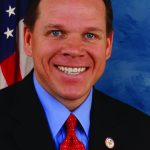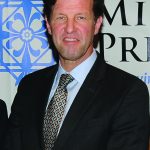HOME | ABOUT US | MEDIA KIT | CONTACT US | INQUIRE
HOME | ABOUT US | MEDIA KIT | CONTACT US | INQUIRE
In its obsession with Kansas politics in general and its Ahab-like pursuit of Kansas Gov. Sam Brownback in particular, The Kansas City Star—much like what’s left of the newspaper industry and local broadcast media-—paid scant attention to other political developments during the run-up to this election season. Yet this year, Missouri is where the excitement will be, and the eyes of the nation will turn this way.
Although there were some surprises on both side of the state line—and more on these in a minute—the marquee race this year, at least regionally, will be for the Missouri governorship. In something of a historic first, the race pits a Democrat-turned-Republican against a Republican-turned-Democrat. Besides party-switching, Republican Eric Greitens and Democrat Chris Koster have much in common. Both are telegenic, ambitious, and generously funded. Expect to see a lot of well-produced television commercials this fall.
 The 52-year-old Koster is a known commodity, especially in the Kansas City area. Although he grew up in St. Louis, he came to Kansas City out of law school to work for Blackwell Sanders. With an early eye on his main chance, Koster was barely 30 when he was elected Cass County prosecutor. He was then elected to state Senate as a Republican and switched parties in 2007 to run successfully for state attorney general as a Democrat.
The 52-year-old Koster is a known commodity, especially in the Kansas City area. Although he grew up in St. Louis, he came to Kansas City out of law school to work for Blackwell Sanders. With an early eye on his main chance, Koster was barely 30 when he was elected Cass County prosecutor. He was then elected to state Senate as a Republican and switched parties in 2007 to run successfully for state attorney general as a Democrat.
Even as a Republican, Koster was conspicuously labor-friendly. In the governor’s race, labor is supplying his big money. The Eastern Missouri Laborers District Council, for instance, has put up $785,000, the UAW $375,000, the Pipefitters $225,000, the Carpenters $147,000. Most of the surrounding states—Kansas, Nebraska, Iowa, and Oklahoma—have passed right-to-work laws. Democratic Gov. Jay Nixon vetoed attempts by Republican legislators to pass a comparable law in Missouri. Labor is betting that Koster will do the same.
Greitens, 42, is something of a mystery man. Most state Republicans had not heard of him before he entered a highly competitive Republican primary. That said, he has the kind of resumé that makes political consultants drool. He has been a Rhodes Scholar,
a Navy Seal, and a White House intern. Deployed to both Iraq and Afghanistan, Greitens has more medals than he has shirt to wear them on.
Unlike his competitors in either party, Greitens received a disproportionate amount of his funding from out-of-state contributors. Some surely see it as an investment in a potential presidential candidate. In the 2016 primary, though, he ran as a “conservative outsider” eager to tackle corruption in Jefferson City. To win, though, Greitens has some serious intra-party patching up to do.
Beyond personal attacks, expect to see more than a few Greitens campaign ads featuring the words “Ferguson” and “Mizzou.” Although he did not stress his position on right-to-work legislation, Greitens came out firmly on its behalf.
In the past, Missourians have proved themselves capable of picking winners from either party in the same election. That may be changing. In the March presidential party, 50 percent more Missourians voted in the Republican races than in the Democratic ones. In their respective gubernatorial primaries, twice as many Republicans voted as Democrats.
Turnout will have less effect on the gubernatorial race than on the down-ticket races and the U.S. Senate race between incumbent Republican senator Roy Blunt and the 35-year-old Democrat Secretary of State, Jason Kander, himself an Afghanistan vet. Neither faced any serious challenge in the primary.
In the most interesting of the down-ticket races, Republican Josh Hawley, an MU law professor, will square off against Democrat Teresa Hensley, another former Cass County prosecutor, in the attorney general’s race. Given Hensley’s featured endorsement
by NARAL Pro-choice Missouri and Hawley’s staunch pro-life credentials, this race could likely turn ideological very quickly.
On the Kansas side, the media’s relentless pounding on Brownback and his fellow conservatives paid dividends. Indeed, even The New York Times was happy to weigh in. As The Times interpreted primary results, conservatives lost in 14 state legislative primary races “amid widespread angst about Kansas’s financial situation.”
The angst is real, much more real than the underlying issue. From 2011-2014, the years during which Brownback was purportedly “destroying” the Kansas economy, median income in the state grew at twice the national average. The Kansas unemployment rate in June 2016 was 3.8 percent. Only 10 states had a lower rate. Missouri, at 4.5 percent, was not among them.
As to the reason for the angst, The Times paraphrased State Sen. Greg Smith’s concern about “a lack of nuance in local news coverage.” Smith, a conservative who lost to moderate Republican Dinah Sykes, likely was more blunt in his appraisal. Smith noted too that many of the moderates “register as Republicans because they know that’s the only way they can win the office.”
In a separate article, The Times quietly celebrated the defeat of three-term Congressman Tim Huelskamp in Kansas’s western 1st Congressional District. Huelskamp was undone by his principled resistance to former House Speaker John Boehner on a number of issues. To punish Huelskamp, Boehner removed him from the House Agricultural Committee, a demotion that cost him the support of Kansas’s powerful agricultural lobby.
The fact that Huelskamp was raised on a farm, received a Ph.D. in political science with a specialty in agriculture policy, and had adopted four children of various races earned him no points with the agricultural interests or the media.
The Times quoted a 1st District resident who voted for Roger Marshall, an obstetrician and political neophyte. “Getting kicked off the Agriculture Committee is a crime that can’t be forgiven,” said the voter tellingly, “I don’t mind the independent voice, but you’ve got to figure out how to work with people.”
Outside interest groups poured some $2.7 million into the race, most of that into Marshall’s coffers. He had the backing of the Kansas Farm Bureau, the Kansas Livestock Association, and the National Association of Wheat Growers, among others. Marshall has no Democratic challenger in the fall, and the state will likely retain its all-Republican congressional cast.
Nevertheless, the Huelskamp defeat sent principled conservatives a chilling message: If you buck the party establishment, corporate special interests may come after you, and the media will cheer your defeat.
Bottom line: Mr. Smith may indeed go to Washington—but he will not necessarily be welcome there.
Nothing in Patrick Weisner’s resume indicates that he’s a fan of Miguel Cervantes, or is ready for his next fitting of armor as Don Quixote. But the Democratic nominee for U.S. Senate in Kansas is tilting at perhaps the biggest windmill of all, lining up across from Republican incumbent Jerry Moran.
How big a task is that? Well, consider that, even though Weisner easily brushed aside challenger Monique Singh in the Democratic primary by a margin of nearly 2-1, his vote total was still only about one-fourth of what Moran picked up in breezing past D.J. Smith’s token opposition in the Republican race.
In one way, though, Weisner is uniquely qualified to work in Washington: As owner of Wiesner & Frackowiak, a law firm with specialization in tax, bankruptcy issues. As his Web site declares, the firm “solves tax and debt problems,” and for a nation nearly $20 trillion in the red, he’d have his work cut out for him.

Jerry Moran
Like Moran, Weisner is a native of western Kansas. He was raised on an Ellis County farm founded in the 1870s by Russian-
German immigrants. He earned an associate’s degree at Colby Community College, a bachelor’s in business in accounting and
in chemistry at Fort Hays State, then an MBA there before his law degree at KU. He also had 21 years of military reserve duty,
retiring in 2014 as a Judge Advocate with the Army. His service took him to Iraq, twice, and to Afghanistan.
His campaign is built on promises to increase staffing of the IRS to make it more efficient at preventing tax debts, rather than trying to collect debts that many will never be able to pay, on choking off the lobbyist access that produced thousand-page behemoths like Obamacare and the Dodd-Frank Act, supporting gun rights while recognizing there are limitations to
them, and calling for a Senate confirmation hearing on Supreme Court nominee Merrick Garland. Despite the latter position, conservatives might be refreshed to hear that Weisner believes that Democrats “deserved” the payback Garland is getting for the Robert Bork nomination in 1987.

Patrick Wiesner
Moran comes to the task with a history steeped in Kansas politics. The Great Bend native served in the state Senate for eight years, including two as majority leader, then went to Congress representing the sprawling 1st District. He served seven terms there from 1996-2010, when the Senate beckoned and he easily won the general election after a close primary contest.
Moran sits on four Senate committees and 13 subcommittees covering appropriations, banking, housing and urban affairs, commerce, science and transportation, and veterans affairs. His commitment to a conservative Congress was on display in 2014 when he served as chairman of the National Republican Senatorial Committee. In that role, he oversaw Republican electoral efforts that yielded a gain of nine seats, tipping control back to the GOP for the first time since 2006. Combined with a Republican-dominated House, that effectively set up a policy bulwark against a Democratic White House.
Despite his overwhelming advantages heading into Nov-ember—in name recognition, voter approval ratings, campaign funding and the state’s political DNA— Moran appears to be taking no chances: He has staked out a lengthy set of issue positions on key issues ranging from agriculture and aviation to health care, immigration, national security, and the so-called social issues.
Kansas’ four congressional districts will feature three contested races this fall: The 1st District has already been decided, since there is no Democratic candidate on the November ballot. In the 4th District, largely made up of Sedgwick County and surrounding area, Republican incumbent Mike Pompeo will face Dan Giroux, managing partner of a Wichita law firm. Two races closer to Kansas City feature multi-term incumbent Republicans against Democratic newcomers:

Lynn Jenkins
In the years since the Republican Revolution of 1994, which put the U.S. House in GOP hands for the first time in 46 years, only once has a Democrat reclaimed the 2nd District seat that includes the state capital of Topeka—Nancy Boyda, who ousted five-term Rep. Jim Ryan in 2006. Voters then, presumably, were willing to accommodate a conservative in the office, but not one they considered too conservative. Two years later, though, state treasurer Lynn Jenkins reclaimed the seat for the GOP and has held it since, by margins of roughly 63-39 in each of the past two elections.
So while the challenge isn’t as insurmountable for a Democrat as it might be in any of the three other congressional districts in the state, Britani Potter certainly has her work cut out for her. Making that task more manageable is a set of issue positions that place her squarely to the right of the national party. Throwing money at welfare programs, for example, won’t by itself achieve positive outcomes, she says, and she’s a small-business proponent who believes corporate interests in Washington have rigged the game.

Britani Potter
She boldly calls out Obamacare for its failure to achieve stated objectives, strongly backs pro-agricultural policies, and wouldn’t restrict 2nd-Amendment rights. The value she places on education stems in part from her service on the Ottawa school board.
Is that enough to dent Jenkins’ support? It’s tough to run on a “me-too” platform if you’re trying to unseat a four-term incumbent who’s beginning to assert some seniority in D.C. And Jenkins has staked out positions on more than a dozen issues that will resonate with the typical Kansas voter—that is, someone more than right of center. Ensuring local control of education, for one. Congressional reforms to block passage of any more thousand-page, unread bills. Strong defense. Energy independence, including opening up federal lands for drilling. Rolling back Obamacare.
Jenkins hasn’t been as vocal with social issues, and with good reason: Those don’t rate highest among the policy priorities of most voters in the state. The lesson of Jim Ryan, perhaps, may have given her a blueprint for success in the 2nd District.
The defeat of 1st District incumbent Tim Huelskamp in the Republican primary earlier this month—and the primary-election losses of 14 hard-line conservatives at the statehouse level—sent a frisson of glee through media outlets like The New York Times and The Atlantic, which produced hopeful accounts of the impending demise of the Tea Party.

Kevin Yoder
Another way to look at it, though, is that when you have nearly a monopoly on legislative seats, there’s only one way to go—down. It’s way too early to declare such a movement afoot, especially in a state as red as Kansas. The real test now is to see whether the same dynamic that gave Huelskamp’s seat to Roger Marshall—the Democrats have no one on the ballot against him in the fall—will cross congressional lines in the 3rd District.
Kevin Yoder, the incumbent, hasn’t enflamed the passions Huelskamp did with farmers by staking out opposition to a farm bill he considered bloated by food-stamp spending. Yoder’s is a more suburban/urban constituency, covering both the generally Republican bastion of Johnson County and the heavily Democratic urban enclave of Wyandotte County.

Jay Sidie
He’s running against Jay Sidie, a political novice who runs a Mission Woods wealth-management firm called Coun-
terpunch Financial and has a background as an agribusiness exec and commodities trader. Statements made during
the campaign suggest he’ll try to tie Yoder to the unpopularity of Gov. Sam Brownback, despite the federal-state differences.
Sidie has identified issues that, though lacking in specifics, are largely in step with the national party—Wall Street reform, gender-based wage differences, predatory lending, defending Social Security and Medicare. He does acknowledge, amid record income-tax receipts, that the federal government has a spending problem that must be addressed if the deficit is to be eliminated.
Yoder is offering reliably conservative bullet points to address half a dozen key issues, including economic development, federal spending, local control of education, repeal of Obamacare, and federal government reforms that would even include elimination of congressional pensions.
One of the key races that will determine control of the U.S. Senate features a young lion challenging an alpha male: 35-year-old Jason Kander, Missouri’s sitting Secretary of State, vs. Roy Blunt, who once held that same state office before moving on to seven terms in the U.S. House and the one Senate term he’s now trying to retain.
The race will draw national attention because Republicans must defend 24 seats, while the Democrats have just 10. They need to hold this seat in Missouri. But complicating that task is the Trump Phenomenon, which compels establishment Republicans in office to support a presidential candidate who has, in effect, trashed them for their performance. And they must do so without alienating the record numbers of voters who turned out for Trump in the presidential primaries.

Roy Blunt
Blunt, however, has something of a head-start: The August primary called out more than 650,000 Republican voters—more than twice the Democratic field, and that was without Trump on the ballot. Blunt, as well, drew more than twice as many votes as Kander.
But the newcomer is part of an emerging breed of Democrats who boast solid foreign-policy credentials forged quite literally in the crucible of war. Kander served in Afghanistan—volunteering for that duty—after finishing law school at Georgetown University. He came home and served two terms in the Missouri House before narrowly winning the secretary of state
office in 2012.

Jason Kander
Not surprisingly, veterans’ issues are a high priority with Kander, but he also emphasizes the need for business development in the state, with the laudable goal of reducing business fees to the lowest in the nation, cutting paperwork for family farms, and making government more accessible to business, as with the on-line upgrades in his department since 2013. He remains reliably in step with the national party on the so-called women’s issues of abortion, equal pay and affordable child care, and supports more public spending on clean-energy sources, including tax credits for energy-saving modifications to homes and businesses. He also opposes voter ID laws that he considers “extreme,” and supports Ban the Box efforts to help former prison inmates re-enter the work force.
Blunt, as well, speaks of jobs growth with improved economic, energy and regulatory policies, but from a more market-driven perspective, including encouraging innovation. He’s running on a detailed agenda of limiting federal overreach, supporting farm families, repealing Obamacare and replacing with better policies, and improving roads, bridges and other infrastructure.
Five outstate congressional elections will help determine whether Democrats can cut into the 6-2 majority that Republicans currently enjoy in the U.S. House:
District 1: Representing the city of St. Louis and northern St. Louis County, incumbent Lacy Clay will seek a ninth
term, hoping to extend a family run in that seat that started when his father, Bill, was elected in 1968. He’ll take on
Steven Bailey, a lawyer, financial planner and senior lecturer at the University of Missouri-St. Louis.
District 2: Incumbent Ann Wagner faced a Republican primary threat, but not much of one: She still picked up nearly 83 percent of the vote this month. Next up is Democrat Bill Otto, a retired air-traffic controller and former state representative from Maryland Heights.
District 3: Chasing a fifth term in Washington, Republican Blaine Luetkemeyer is a former three-term veteran of the Missouri House. His opponent is Democrat Kevin Miller.
District 7: Genevieve Williams, a Democrat from Neosho, has the unenviable task of facing incumbent Billy Long. He breezed past seven Republican rivals—he was nearly 50 points ahead of his closest challenger— to earn a shot at a third term.
District 8: Incumbent Jason Smith emerged comparatively unscathed from a four-way primary race, still managing to pick up two-thirds of the votes—and that total was still more than three times what David Cowell, a retail executive, managed while unopposed on the Democratic side, hinting that this will be among the safest of House races for the GOP.
District 4: Vicky Hartzler (R) vs. Gordon Christensen (D)

Vicky Hartzler

Gordon Christensen
Cass County native Vicky Hartzler made national news as part of the 2010 Republican wave election that ended the political career of the late, iconic Ike Skelton, the long-serving House Democrat. An eight-term veteran of the Missouri House, she’s now bearing down on a fourth term in Washington, hoping to add seniority to her roles on the Agriculture, Armed Services and Budget committees. All three of those positions are close to her interests in the rural, 24-county 4th district, which is also home to Whiteman Air Force Base. She’ll be tested this year by Democrat Gordon Christensen, a self-described fiscal conservative with a socially progressive bent. He’s a physician trained in internal medicine who has taught at the University of Missouri for 27 years, and has served as chief of staff at the University of Missouri Hospital. He cites, not surprisingly, health care as a key issue that still must be addressed, but among others are rebuilding the middle class, environmental issues and what he calls “getting big money out of politics.” Christensen has set a goal of working toward a 50 percent reduction in carbon emissions and is opposed to subsidies for fossil fuels.
District 5: Jacob Turk (R) vs. Emanuel Cleaver (D)

Emanuel Cleaver

Jacob Turk
We’ve seen this movie before, but can the ending ever change? Republican Jacob Turk is taking a sixth straight run at what has long been one of the safest Democratic seats in Congress. It’s currently held by Emanuel Cleaver, the former Kansas City mayor who is seeking a seventh term. In 2012, Cleaver hammered Turk by 23 percentage points, riding a voter turnout during a presidential election year. The Republican wave election of 2014 closed that gap considerably, but Turk still came up 6.5 points short. Will another presidential election—albeit one without a minority on the ballot—alter the dynamic here? Turk hopes so, based on positions that call for repealing Obamacare and replacing it with … something more effective. That’s a personal issue to Turk, who says the Affordable Care Act cost him his own health-insurance coverage. He also calls for a strong national defense, improved border security and a greater focus on veterans’ issues. Cleaver breaks with liberal orthodoxy that calls for reductions in defense spending, and voted last year to extend tax cuts for the middle class. He’s more in step with the party in calling for a higher federal minimum wage, with the gender pay divide, with global warming solutions and clean energy subsidies—hence his history of 100 percent voting-record approvals from NARAL, environmental groups, unions and other mainline liberal constituencies. Correction: The print version of this story misstated Cleaver’s years of congressional service.
District 6: Sam Graves (R) vs. David Blackwell (D)

Sam Graves

David Blackwell
About the only campaign advice one can offer to a Democrat—just about any Democrat—seeking to represent Missouri’s 6th congressional district in Washington is, “good luck with that.” Four Democratic challengers squared off this month for the right to face incumbent Sam Graves, and the one to emerge from that scrum was David Blackwell, a self-proclaimed Bernie Sanders Democrat. That’s a neat trick these days, since Sanders himself publicly left the party shortly after Hillary Clinton secured the Democratic nomination for president. Blackwell, a software developer for an Overland Park IT company, is going up against one of the most reliably conservative votes on Capitol Hill for the past 16 years in a district that borders Iowa and stretches from the Missouri River to the Mississippi. A personal point of pride for this fiscal conservative is that he was among a comparative handful in Congress who refused to vote for any of the bailouts, stimulus packages or government takeovers that followed the economic crisis of 2008. Graves is a proponent of a simplified tax system, and advocates for job-creation initiatives that spring from market forces, not central planning.
Governor: Eric Greitens (R) vs. Chris Koster (D)
Unless Libertarian Cisse Spragins pulls off one of the biggest third-party gubernatorial upsets in history, Missouri’s next governor will either be current Attorney General Chris Koster, whose political career has stair-stepped him toward the state’s top executive office, or Eric Greitens, a political outsider in the Donald Trump mode, who has argued that entrenched politicians are incapable of moving the state forward.
Koster enters this phase of the campaign season with name recognition—he’s been the state’s chief law-enforcement officer for eight years—and with a campaign war chest teeming with nearly $11 million in cash on hand as the primary season entered its final week. He had little reason to dip into it, easily brushing aside three Democratic challengers on Aug. 2
and earning more than 78 percent of the vote (including a 10-1 vote margin over former Kansas City Mayor Charles Wheeler).
Much like incumbent Jay Nixon, who has governed in the fashion of a vanishing breed once known as the conservative Democrat, Koster has throughout his career staked out positions that make it difficult to pigeon-hole him. And that’s not simply because he switched parties in 2007, leaving the GOP because he felt the state party was becoming too rigid with its ideology.

Chris Koster
For example, he says Missouri should be a Top 10 business-friendly state, and would push for lower business taxes to achieve that. He backed the state’s 2nd-amendment voter referendum in 2014, and supports voter identification requirements. As attorney general, he took on the federal government by suing the Environmental Protection Agency over its proposed expansion of the Clean Water Act, and he called the agency’s crackdown on CO2 emissions “federal overreach.”
Closer to party doctrine, he’s pushed for higher taxes on cigarette sales, backed statewide expansion of the federal Medicaid program, and says he believes that the Affordable Care Act so despised by conservatives has generated jobs and cut health-care costs in Missouri.
It will be tough, then, for Greitens to pin a label of liberalism on someone who, though rated 100 percent pro-choice by NARAL, also has a 93 percent pro-gun rights ranking by the National Rifle Association.
Greitens may have tapped into the same current that jolted the Republican Party throughout the past year. During the presidential primaries, Trump secured record numbers of Republican voters by distancing himself from a field of 16 candidates, many of whom were highly regarded for their conservative bona fides demonstrated during public-service careers at the federal and state levels.

Eric Greitens
In some ways, Greitens did the same: Two of the three opponents he vanquished by comfortable margins had statewide name recognition. One was Lt. Gov. Peter Kinder, a three-term veteran Lieutenant Governor, and before that, state senator, who had the endorsement of radio’s conservative conscience, fellow Cape Girardeau native Rush Limbaugh. Another was Catherine Hanaway, the first woman ever to serve as speaker of the Missouri House, and the first Republican in that role in 48 years when she earned that title. Even his third opponent, third-generation family-business owner John Brunner, had developed name recognition by running previously for U.S. Senate.
But Greitens delivered a mild shock to the state’s political punditry by earning nearly 35 percent of the votes cast, safely ahead of Brunner’s 24.8 percent. Kinder and Hanaway? The two people with the purest political pedigrees had to settle for roughly 21 and 20 percent.
The 42-year-old Greitens is a former Navy SEAL—he signed up shortly after the 9/11 terrorist attacks in 2001, then served in both Iraq and Afghanistan. His resume is larded with significant achievement: Rhodes scholar, White House fellow, book author. He came back from the Middle East to start a non-profit called The Mission Continues, helping veterans make a smooth transition back home by aligning them with other non-profits in volunteer roles.
Now, the one-time Democrat is flashing conservative credentials that would impress even a Ted Cruz fan. Greitens has vowed to shrink state government with a success-metrics approach to department and agency funding, and he wants to crack down on the revolving door between legislative service and lobbying careers in Jefferson City. He’s a pro-life, 2nd-Amendment supporter who belives that “people of faith are under attack.”
His policies would yield more school choice, he opposes Common Core education standards, he’s a right-to-work supporter and he wants to simply the state’s tax code and reform welfare to end generational dependency.
Lieutenant Governor: Mike Parson (R) vs. Russ Carnahan (D)

Russ Carnahan

Mike Parson
Russ Carnahan is a former four-term Congressman with a family name well-known to Missouri voters; Mike Parson is a former Polk County sheriff for 12 years who served three terms in the Missouri House and two in the Senate. This race, in particular, offers clear choices in political philosophies. Carnahan, son of the late Gov. Mel Carnahan and brother of former Secretary of State Robin Carnahan, is largely running on a congressional record that produced 100 percent ratings by liberal interest groups like the Sierra Club and various union groups, and 0 percent from conservative groups like the Eagle Forum. Parson is a limited-government, tax-cutting fiscal conservative who is pro-life, pro-gun rights and a defender of family-farm interests. Often overshadowed by other levels of government, this office fills a number of key functions for the state: presiding over the Senate and casting a tie-breaking vote if needed; sitting on a number of state boards, filling in if the governor is absent or disabled, and assuming those duties if the governor dies or leaves office.
Secretary of State: Jay Ashcroft (R) vs. Robin Smith (D)

Jay Ashcroft

Robin Smith
Missouri political blood lines show up again with Jay Ashcroft, whose father had a storied career as governor, U.S. senator and attorney general for both Missouri and the nation. He’s squaring off against Robin Smith, a former St. Louis-area television news reporter and anchor who left that business to become a real-estate agent and earn her MBA in international business from Saint Louis University. Ashcroft, who holds bachelor’s and master’s degrees in engineering management from Missouri University, became a lawyer in 2009 and works in private practice, specializing in helping business comply with regulations. Smith has touted her extensive involvement in civic and non-profit causes in the St. Louis region and says her main priority if elected would be protecting voting rights for all. Ashcroft says he’ll use the business-administration functions of the office to promote job creation and lowering barriers to start-up, and he’s on record supporting voter ID laws, clearer ballot language and improved vote-counting security.
Missouri Attorney General: Josh Hawley (R) vs. Teresa Hensley (D)

Teresa Hensley

Josh Hawley
The state’s next top law-enforcement official will either be Teresa Hensley, a veteran lawyer and two-term prosecutor from Cass County, or a comparative newcomer, 36-year-old Josh Hawley, who is running on solidly conservative credentials. He’s pro-life, pro-gun rights and an advocate for religious-liberty protections, which showed with his work as co-counsel on the Hobby Lobby case before the U.S. Supreme Court, which issued a landmark ruling that individuals do not lose their religious freedom when they open a family business. A native of Lexington, he graduated from Rockhurst, then with honors from Stanford University, and earned his law degree at Yale. Hensley, a Cass County native, earned her law degree from UMKC and started her career in the family’s law firm in Raymore. She’s trying to succeed Attorney General Chris Koster in office for a second time—she was named Cass County prosecutor in 2005, after he became a state senator en route to the AG’s office, and her office secured 21 murder convictions.
State Treasurer: Eric Schmitt (R) vs. Judy Baker (D)

Eric Schmitt

Judy Baker
With Clint Zweifel being term-limited from office, the state will get a new chief financial officer. Eric Schmitt know something about the two-term limit; he’s wrapping up his second and final stint as a state senator from St. Louis County. Judy Baker, a mother of three who holds degrees in educational psychology and health-care administration, was also a legislator, serving in the House from 2004-2008. She has taught at several universities in the state, most recently as an adjunct professor at Washington University. She supports farm-sustainability programs and low-interest farm loans, public renewable energy spending, re-entry savings accounts for incarcerated felons, child savings and development accounts, and advocates for an on-line system that will allow citizen review of state spending with searchable database. Schmitt is largely running on a legislative record, emphasizing work he’s done to promote job creation, government efficiency and transparency and autism insurance reform.